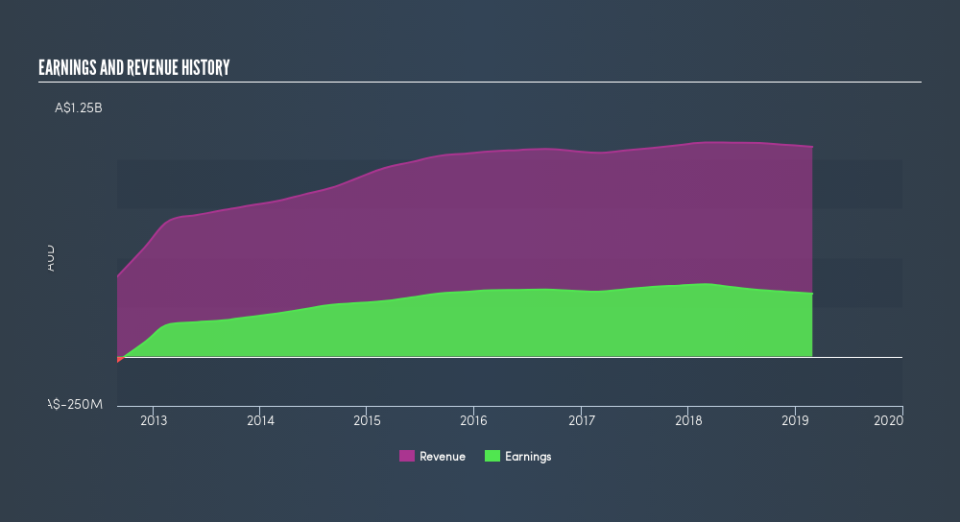One Thing To Remember About The Bank of Queensland Limited (ASX:BOQ) Share Price

If you own shares in Bank of Queensland Limited (ASX:BOQ) then it's worth thinking about how it contributes to the volatility of your portfolio, overall. In finance, Beta is a measure of volatility. Volatility is considered to be a measure of risk in modern finance theory. Investors may think of volatility as falling into two main categories. First, we have company specific volatility, which is the price gyrations of an individual stock. Holding at least 8 stocks can reduce this kind of risk across a portfolio. The second sort is caused by the natural volatility of markets, overall. For example, certain macroeconomic events will impact (virtually) all stocks on the market.
Some stocks see their prices move in concert with the market. Others tend towards stronger, gentler or unrelated price movements. Beta can be a useful tool to understand how much a stock is influenced by market risk (volatility). However, Warren Buffett said 'volatility is far from synonymous with risk' in his 2014 letter to investors. So, while useful, beta is not the only metric to consider. To use beta as an investor, you must first understand that the overall market has a beta of one. A stock with a beta below one is either less volatile than the market, or more volatile but not corellated with the overall market. In comparison a stock with a beta of over one tends to be move in a similar direction to the market in the long term, but with greater changes in price.
Check out our latest analysis for Bank of Queensland
What does BOQ's beta value mean to investors?
Looking at the last five years, Bank of Queensland has a beta of 0.86. The fact that this is well below 1 indicates that its share price movements haven't historically been very sensitive to overall market volatility. This means that -- if history is a guide -- buying the stock would reduce the impact of overall market volatility in many portfolios (depending on the beta of the portfolio, of course). Many would argue that beta is useful in position sizing, but fundamental metrics such as revenue and earnings are more important overall. You can see Bank of Queensland's revenue and earnings in the image below.
Does BOQ's size influence the expected beta?
With a market capitalisation of AU$3.7b, Bank of Queensland is a pretty big company, even by global standards. It is quite likely well known to very many investors. It is a little unusual to see big companies like this trade on low beta values. Oftentimes there is some other clear influence on the share price, overshadowing market volatility.
What this means for you:
One potential advantage of owning low beta stocks like Bank of Queensland is that your overall portfolio won't be too sensitive to overall market movements. However, this can be a blessing or a curse, depending on what's happening in the broader market. In order to fully understand whether BOQ is a good investment for you, we also need to consider important company-specific fundamentals such as Bank of Queensland’s financial health and performance track record. I highly recommend you dive deeper by considering the following:
Future Outlook: What are well-informed industry analysts predicting for BOQ’s future growth? Take a look at our free research report of analyst consensus for BOQ’s outlook.
Past Track Record: Has BOQ been consistently performing well irrespective of the ups and downs in the market? Go into more detail in the past performance analysis and take a look at the free visual representations of BOQ's historicals for more clarity.
Other Interesting Stocks: It's worth checking to see how BOQ measures up against other companies on valuation. You could start with this free list of prospective options.
We aim to bring you long-term focused research analysis driven by fundamental data. Note that our analysis may not factor in the latest price-sensitive company announcements or qualitative material.
If you spot an error that warrants correction, please contact the editor at editorial-team@simplywallst.com. This article by Simply Wall St is general in nature. It does not constitute a recommendation to buy or sell any stock, and does not take account of your objectives, or your financial situation. Simply Wall St has no position in the stocks mentioned. Thank you for reading.

 Yahoo Finance
Yahoo Finance 
